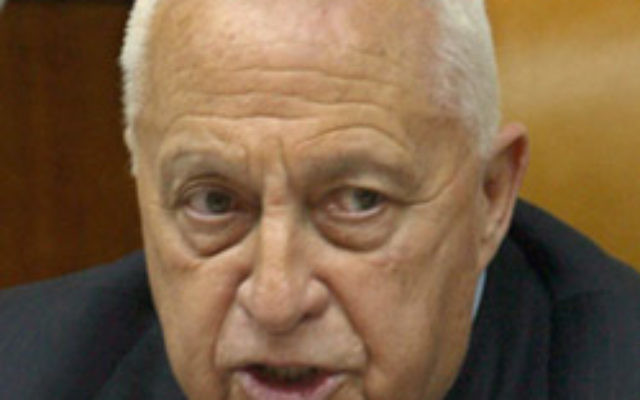Israeli expats recall ‘superman’ Sharon
“I GREW up in Israel in the 1960s and ‘Arik’ was our hero, the superman of my generation,” recalls Nitza Lowenstein, an Israeli expatriate living in Sydney.
“I GREW up in Israel in the 1960s and ‘Arik’ was our hero, the superman of my generation,” recalls Nitza Lowenstein, an Israeli expatriate living in Sydney.
“He was the new Israeli that our forefathers dreamed of. Intelligent, a brave soldier, a farmer with strong roots to his land – strong, charismatic, and handsome,” the marriage celebrant and SBS radio producer enthuses.
“All the boys in my class in primary school wanted to grow up and be like Arik! For the girls he was the ultimate dream!”
Dr Ran Porat, Melbourne-based editor of Ausraelim.com.au, was a member of the Israel Defence Forces during Sharon’s term as prime minister. He says his position as a junior officer in army intelligence enabled him to learn a lot about Sharon’s character through others who had dealings with him.
He tells The AJN of Sharon’s intense impact on the armed forces. In his military career he was “a revered commander”, while during his time as a politician, “[he] was able to move the army to its most extreme abilities.”
And while he worked towards the bigger picture, Sharon also paid attention to the details, says Porat. “This prime minister had the ability to both see the forest and walk among the trees.”
A key political achievement, according to Porat, was his unwavering stance – against that of Yasser Arafat – that any future negotiations must be on the basis of recognising Israel as a Jewish state.
“I think his legacy would be that he was a person who strived to get to the target; to achieve his goals no matter what,” Porat says, drawing attention to Sharon’s well-known nickname, “the bulldozer”. “He used to put an ‘x’ on the goal and strive for it without stopping.”
While he proved himself a “fearless warrior”, Porat understands that on a personal level Sharon was soft and charming with a sense of humour. “He knew how to get to people’s hearts.”
A contrast indeed to the way he practised politics.
Lowenstein says that, like many great leaders in history, Sharon was “a complex human being with a public life full of paradoxes”. But she feels he left a strong legacy in Israel nonetheless.
She recalls when a million Jews came from the Soviet Union in the 1990s; as the housing minister Sharon built thousands of homes for them in a short space of time – something Porat too credits as one of his most significant achievements.
“I realised what a great leader he was when he was prepared to make the ultimate sacrifice in order to achieve peace,” Lowenstein adds, referring to the disengagement from Gaza. “He was prepared to dismantle the settlements that he built himself and turn away from an ideology that guided him all his life, when he believed that was the right thing to do for the people of Israel.”
As a character who exerted such clout on the political landscape in the Middle East, it is no surprise people question what might have been had Sharon not fallen ill when he did.
“Some say that if he had not had a stroke, Israel would not have found itself at war in July 2006 … this story is all about ‘what if?’” says Porat.
PHOEBE ROTH


comments